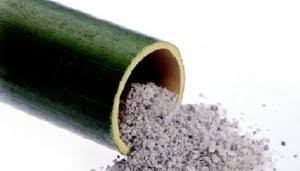Bamboo salt is also known as Jugyeom. Jugyeom is a form of salt. With the help of a thick bamboo stem,
the salt is prepared by packing bay. Using the pine firewood the salt needs to be heated at a high
temperature and should be baked nine times. The baking transforms bay salt into healthy food
products. This salt is very expensive, and why it is expensive, will study it on this blog.
Bamboo salt is a labor-intensive process. Most of the manufacturing act involves manually and it
requires stuffing sea salt in the bamboo cases, breaking and crushing the rock-solid salt. All these
processes require manpower and work on manual processes. When the salt is roasted 9 times the salt
turns into purple color due to its high temperature.
The following points show the reasons regarding the expensive of bamboo salt –
On an online and digital platform, there is an ad regarding the purple bamboo salt boasting that it is a
crystalline compound that contains 80 trace minerals. It got 22 ratings, and a review on customer’s
thinking level was also found on the holy grail. For centuries together this salt has been used as a
traditional medicine form and been used as Korean Cuisine. This is one of the reasons it is
astronomically expensive. For example: in the US, woodland foods sells 33 ounces of bamboo salt for
$46.35. and per the business insider, in Korea, there are different versions of salt that cost over$179 to
$224 per kilo.
Reasons of bamboo salt cost over $179 –
● As per woodland foods description, the salt has umami-rich and complex along with a
distinctive, subtly sulfurous aroma. The manufacturer of bamboo salt told the insider business
that the salt is imbued with bamboo’s egg yolk-like flavors. But the taste differs from the unique
taste of the salt profile. Therefore it is very expensive.
● According to a business insider, they train carefully on bamboo salt makers, pack sea salt from
Korea’s west coast into 3-year-old bamboo stalks and put them into a kiln exclusively powered
by pine logs, until the stalk burns away.
● According to the American Heart Association, the major difference between table salt and sea
salt is sodium content. By weight both the salt contains the same amount of sodium, ingredients
used in many recipes by volume. Then table salt, sea salt contains a large number of crystals and
flakes.
Benefits of bamboo salt –
1. Improves metabolism
2. Aids in red blood cells production and cleanup of blood vessels
3. Aids in cell reproduction
4. Detoxifies and sterilizes
5. Supplement essential minerals
6. Stops bleeding
7. Improves digestion
8. Regulates body fluids
9. Stabilizes blood pressure
Therefore these are few advantages of the usage of bamboo Korean salt.
Most people wonder why they spend so much on this salt but at the same time, they are very conscious
about their health. They look into these benefits and buy the salt without having any second thought
over the price of the salt. This salt is majorly used in Korean medicine as I said before, it has been used
for centuries. It treats and prevents the diseases of anti-cancer, anti-oxidant, anti-inflammatory, and antimicrobial effects.

